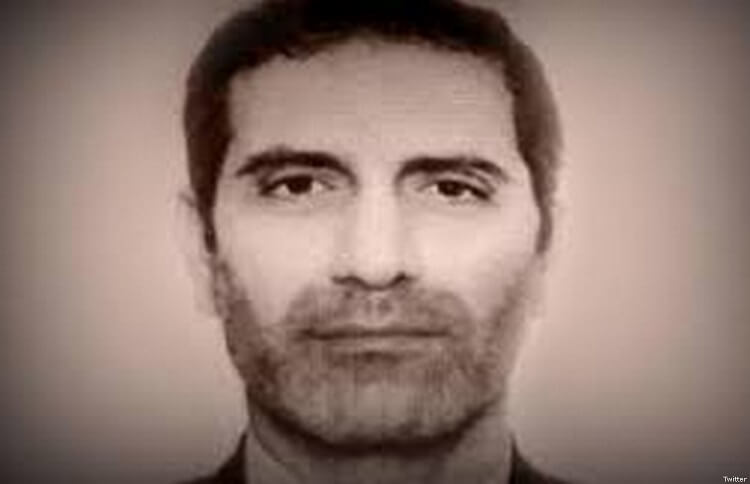On Friday 27 November 2020, a terrorist network with affiliations to the Iranian regime will be put on trial in Belgium.
Four agents, including the Iranian diplomat Assadollah Assadi, stand accused of masterminding a failed 2018 terror plot in Paris. The attack targeted a huge rally organised by an exiled Iranian opposition group but was thwarted at the last minute by a cross-border operation.
According to a Eurasia Review report: “British politicians, European Union MP’s, and American Congresspeople, as well as the thousands of human rights activists… were present at the gathering.”
Legal documents obtained by the Associated Press show that Belgium’s intelligence and security agency (VSSE) is working under the assumption Assadollah Assadi was following the directions of Iranian authorities and that he brought the explosives into Europe himself.
In a note to Belgium’s federal prosecutor, VSSE wrote:
“the planned attack was conceived in the name of Iran and at its instigation.”
The court case is likely to embarrass Tehran. Whilst the Iranian regime has been suspected of ordering the assassination of political opponents on foreign soil in the past – such as Dr. Abdolrahman Ghassemlou in Austria (1989), Dr. Shahpour Bakhtiar in Paris (1991), Dr. Kazem Rajavi in Switzerland (1990), and Mohammad Hossein Naghdi in Italy (1993) – this is the first time that they have been implicated legally for sponsoring terrorism in Europe.
Three others stand trial in the Antwerp court, including a couple that were arrested on the day of the terror attack with the explosives in their car and a third Iranian citizen. With the exception of Assadollah Asadi, the third secretary of the Iranian regime’s embassy in Austria, all others on trial have confessed their involvement in the terrorist operation and its links to the Iranian regime.
The court case will be seen by many as an opportunity for Europe to hold Iran to account.
Tehran has favoured tactics of civilian endangerment, such as arbitrarily detaining dual nationals for use as a bargaining chip or engaging in terror, to further their diplomatic aims. A successful prosecution could go a long way to showing Iran that its current behaviour will not be tolerated.
While four individuals stand trial on 27 November 2020, the Iranian regime is likely to view the case as having wider significance.
In a possible act of retaliation, news broke on 24 November 2020 that Iran is preparing to execute Swedish-Iranian emergency medicine specialist Dr Ahmadreza Djalali.
The Iranian regime has been known to take such actions in response to developments in the West. In October, British-Iranian dual national Nazanin Zaghari-Ratcliffe was told to “pack a bag for prison” following a court hearing between the UK and Iran over a historic £400 million debt was postponed until April 2021.
It is only to be hoped that Tehran is not using Dr. Djalali’s life as a bargaining chip to send a message to Belgium and European authorities that: There will be repercussions if you pursue this course.
In response to the tragic development in the case of Dr. Djalali, Director of the International Observatory of Human Rights Valerie Peay said:
“We stand in support of Dr Djalali and his family. Ahmadreza has already suffered gross injustice, pain and the cruel separation from his wife and two children. For three years he has faced a baseless death sentence while Iran has used him as a bargaining chip and sought to gain leverage with the international community by unjustly incarcerating Dr Djalali and other dual nationals. Now is the moment for the Islamic Republic to cease this action to execute Dr Djalali and instead, release him to return his life in Sweden with his family.”

